Home > Farm > Ag Education > How the Detroit School Garden Program is Teaching Michigan Students
How the Detroit School Garden Program is Teaching Michigan Students
In partnership with: Michigan Department of Agriculture & Rural Development
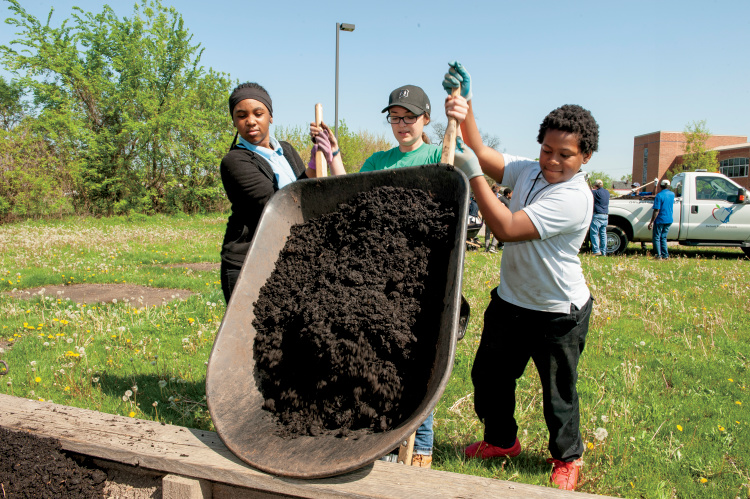 Ever wonder what happens to the grass clippings, shrub trimmings and tree leaves that southeast Michigan residents leave at the curb in front of their homes?
Ever wonder what happens to the grass clippings, shrub trimmings and tree leaves that southeast Michigan residents leave at the curb in front of their homes?
The answer is a combination of environmental and educational magic thanks to a collaborative partnership between Advanced Disposal and Detroit Public Schools Community District (DPSCD).
Arbor Hills Compost Yard
Through the composting process at Arbor Hills Compost Yard in Washtenaw County’s Salem Township, tons of Michigan residents’ yard waste is recycled into nutrient-rich soil. This soil, known as compost, is donated to the school system for students to use as they learn about farming, agriculture and nutrition.
“At Arbor Hills, we facilitate the natural composting process where yard debris collected from people’s homes is organically transformed into a very useful product prized among gardeners,” says Joe Kohn, Advanced Disposal’s community relations manager. “Composting is nature’s recycling, and it’s great that it can be good for the environment and for education.”
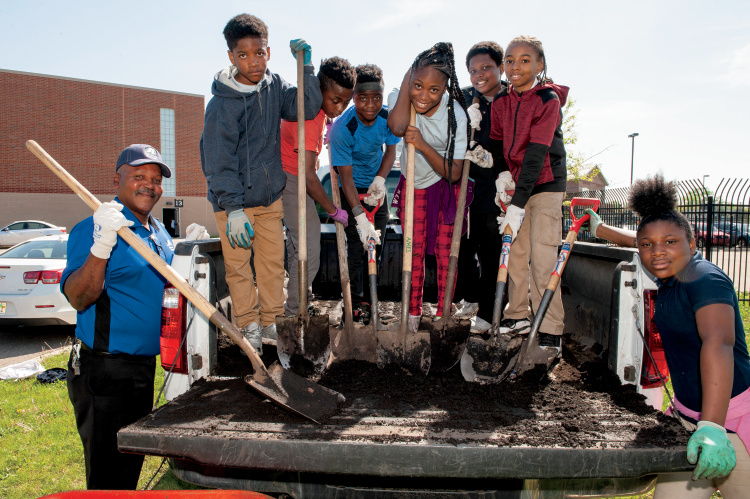
Detroit School Garden Collaborative
This resource is especially treasured by the Detroit School Garden Collaborative, which is responsible for 82 gardens throughout DPSCD schools.
“Our school garden program uses more than 100 cubic yards of compost every year to refresh our garden beds and farming soils to maintain healthy, productive soil,” DPSCD’s Senior Garden Manager Matthew Hargis says. “Finding that much compost locally was a bit of a challenge, but Advanced Disposal stepped up to help us meet our needs.”
Each school garden is made up of six spruce wood raised beds at 32 square feet per bed, and each of the beds are assembled by DPSCD students from Randolph Career and Technical Center or the Drew Transition Center.
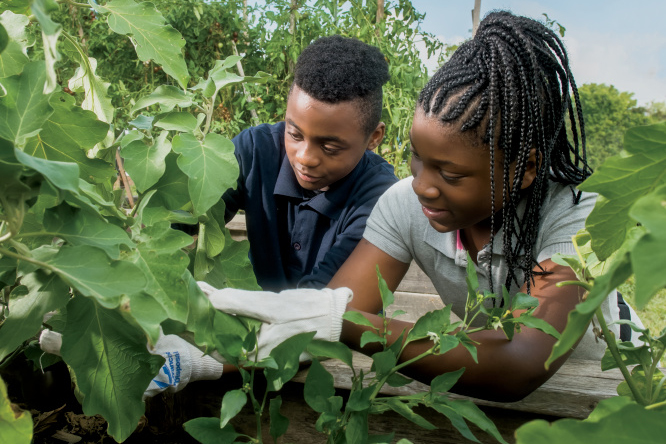
“Food grown at our school gardens is typically used at the school or given away to parents or community members,” Hargis explains. “We try to grow foods that are served on the school’s lunch menu so that students are familiar with the produce because they’ve been exposed to it from seed to plate.”
Key crops include kale, collards, broccoli, tomatoes, sweet potatoes, eggplant and summer squash.
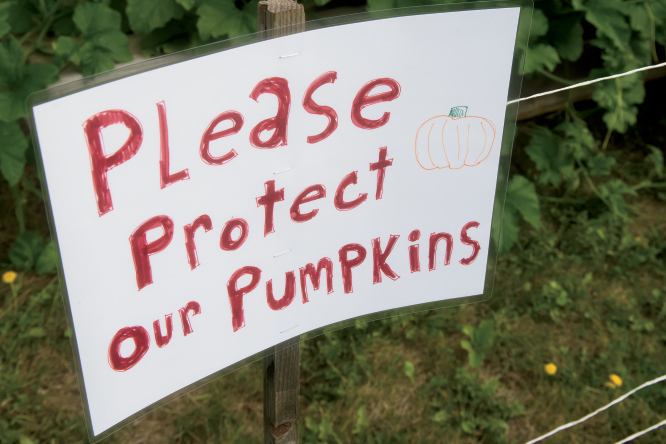
Detroit School Garden Makes an Impact
While the gardens don’t currently produce enough food to cover school lunches across the entire district, the goal of the program goes deeper than stocking the fridge.
“Our school gardens give students hands-on learning spaces to explore science and nutrition, so we can nourish both their minds and bodies through participation in this program,” Hargis says.
Working in the gardens offers students in DPSCD the opportunity to learn more about farming and agriculture and discover how much work goes into growing their own food.
“In a city like Detroit, students need outlets like those we provide,” Hargis says. “Why send them to the country to learn what a farm is when we’re uniquely positioned to farm right here in their backyards?”
Hargis says even if children don’t go home and start growing their own food, he’s proud to offer a program that tests their imaginations and expectations of what life in the city should look like.
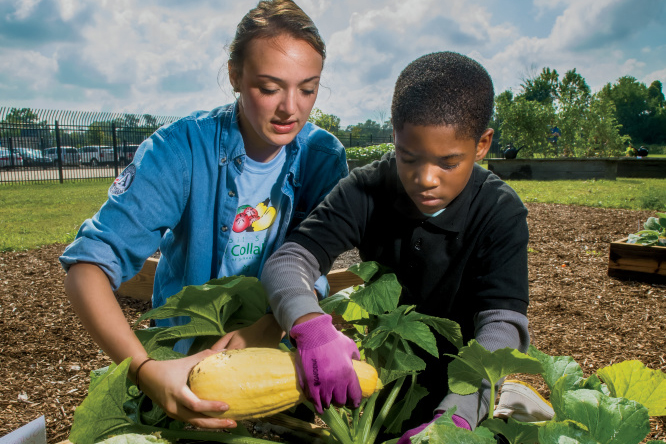
“Our garden program has the potential to impact every single student in DPSCD in the long term,” Hargis says. “I’m proud to be a part of DPSCD and this city’s growing local food movement.”
The teams at Advanced Disposal and Arbor Hills share similar sentiments.
“Today’s students will be the future stewards of our natural environment,” Kohn says. “DPSCD is helping young people connect important dots – that being sustainable means being resourceful and environmentally responsible. We would be hard-pressed to find a more ideal initiative to support than a school system that uses compost to teach gardening, promote environmental stewardship and provide healthy ingredients for school lunches.”



